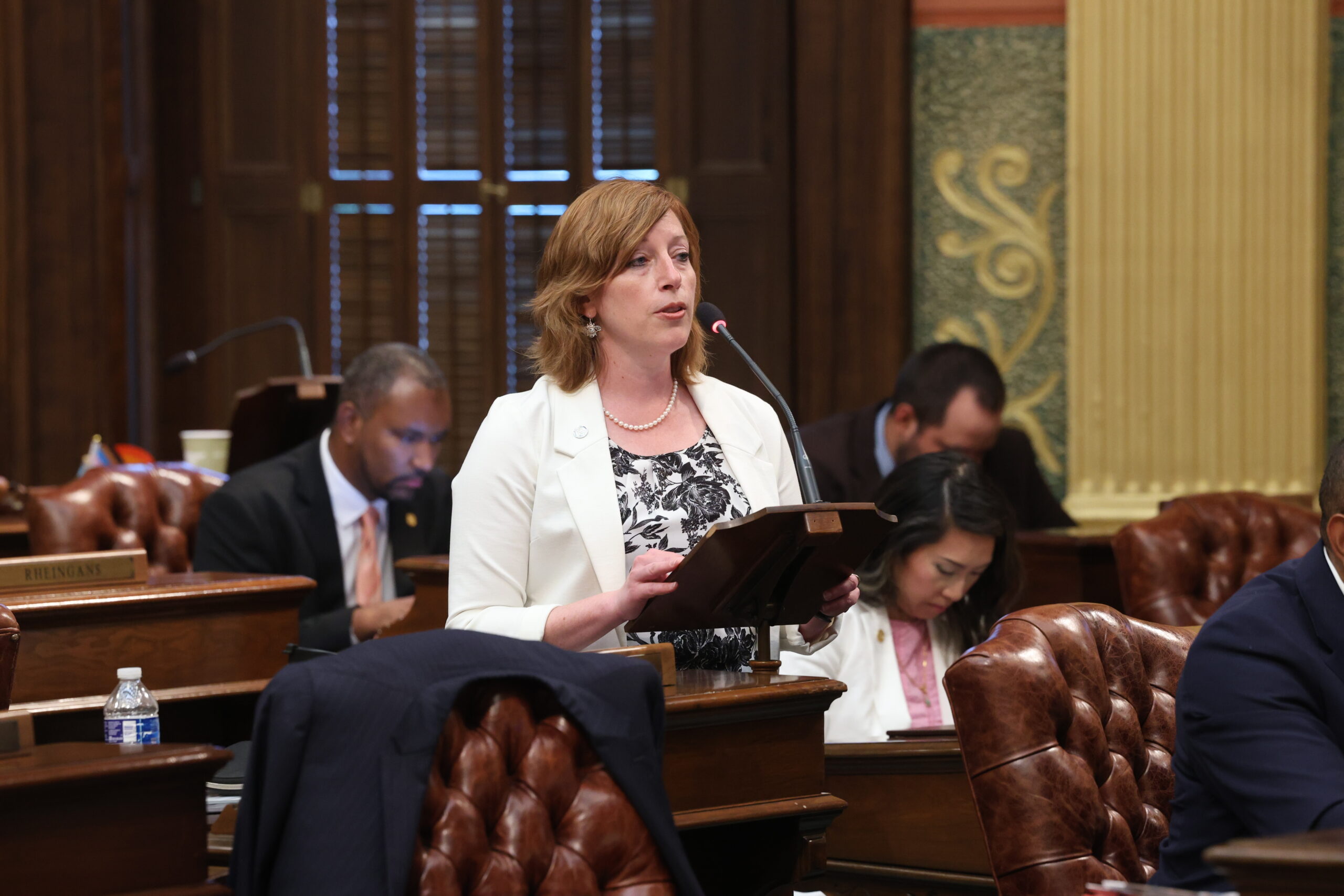LANSING, Mich., May 2, 2024 — State Rep. Julie M. Rogers (D-Kalamazoo) is pleased to announce the successful passage of House Bills 4169 and 4170 through the Michigan House of Representatives. This bipartisan legislation adds Michigan to the Occupational Therapy Licensure Compact (OTLC) — marking a major step forward in enhancing the practice and accessibility of occupational therapy across state lines. Similar legislation, House Bills 4504 and 4505, also overwhelmingly passed the House today, which enters Michigan into the Physical Therapy Licensure Compact (PTLC).
The newly passed bills amend the Public Health Code to allow occupational therapists, occupational therapy assistants, physical therapists and physical therapist assistants licensed in one compact-member state to practice in other member states without the need for multiple licenses. This change is expected to dramatically improve access to both occupational and physical therapy services.
“Today, we celebrate a landmark victory for patient access and for thousands of Michigan residents, including military families, who rely on occupational and physical therapy services,” Rogers said. “As a practicing health care provider, I’m proud that Michigan is not only advancing access to health care, but is also ensuring that our licensed professionals can serve patients more effectively.”
“Physical therapy plays an important role in comprehensive care for Michiganders. It’s important we promote access to this care, especially for rural and underserved areas who need access to preventative and rehabilitative care,” said state Rep. John Fitzgerald (D-Wyoming). “By joining the Physical Therapy Licensure Compact, we can enhance the ability of physical therapists to serve across state lines, broadening the availability of essential health services and ensuring that people receive timely and effective care. By passing these bills, we are not just reforming licensure; we are reaffirming our commitment to the health and well-being of every Michigander.”
The OTLC and PTLC facilitate the interstate practice of occupational and physical therapy with the goal of improving access, while maintaining the high standards of health care delivery within member states. The compacts also support military families by allowing military personnel and their spouses to retain their home state license while stationed in any state that is a member of either compact. Currently, there are 37 member states in the PTLC, and 28 member states in the OTLC; Michigan is now on the path to becoming the 38th and 29th states, respectively, to legally allow these protections for our citizens.
“I want to thank Chairwoman Julie Rogers (D-Kalamazoo) and Rep. Douglas Wozniak (D-Shelby Township) for their leadership on House Bills 4169 and 4170,” said Cathleen Johnson, chair of the Michigan Occupational Therapy Association. “This legislation will not only boost access to occupational therapy services across the state, but improve care coordination for patients. This is a very exciting day for Michiganders.
Brian Gilbert, President of the American Physical Therapy Association (APTA) Michigan, was also pleased the bills passed. “The APTA Michigan is grateful for the steady leadership of bill sponsors state Reps. John Fitzgerald (D-Wyoming), Dale Zorn (R-Onsted) and House Health Policy Chair Julie Rogers, who helped champion the passage of House Bills 4504 and 4505. The bills, when signed into law, will enter Michigan into the PTLC, which will allow Michigan to retain and attract top PT talent across the state. This will help to meet the current workforce needs, provide greater consumer access to specialty PT care and address licensure portability issues for Physical Therapists (PTs) and Physical Therapist Assistants (PTAs). We are beyond grateful to state Reps. Fitzgerald, Zorn and Rogers for their unwavering support and recognition that professional interstate compacts are a helpful, safe and thoughtful approach to tackling 21st century labor and consumer demands.”
The legislation has received broad support from various stakeholders, including the Michigan Occupational Therapist Association, the American Physical Therapy Association of Michigan, the Council of State Governments, the Michigan Health and Hospital Association and the U.S. Department of Defense. As the legislation moves to the state Senate, Michigan joins a growing list of states that have adopted the compacts, enhancing occupational and physical therapy practice standards nationwide and supporting the future development of both professions.
###

